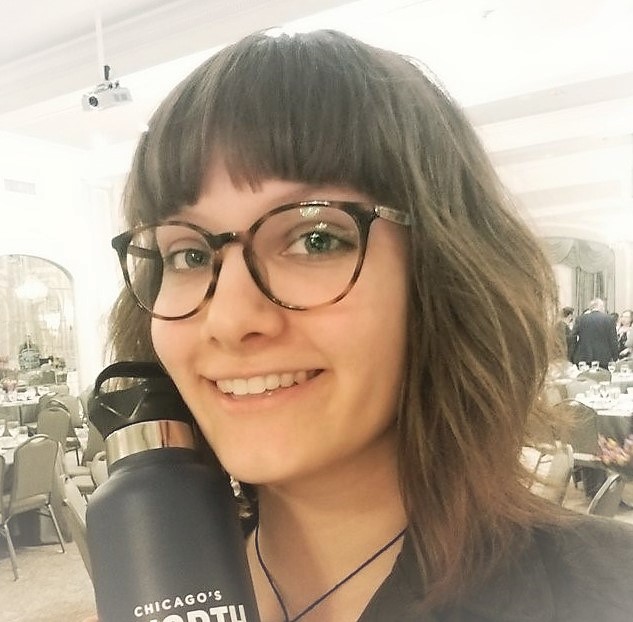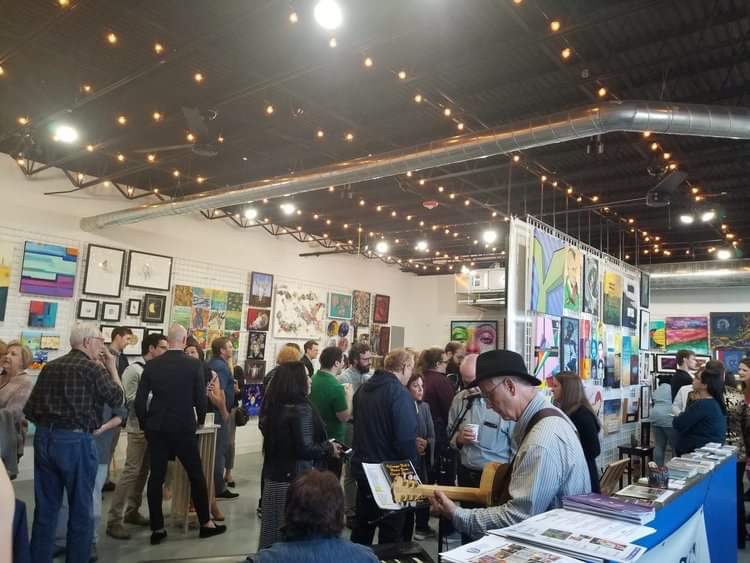Undergraduate research experiences can prepare students for the future in ways they might not expect. Hannah Litvan graduated with art and creative writing majors from Albion College in 2015; within two years she had founded the Ice House art gallery in Evanston, Illinois. Starting a business required skills not typically included in studio art or creative writing, but Litvan found that her undergraduate research experiences in particular had made her more articulate, more adaptable, and with a larger perspective on the core value of art.
Ready For Anything
Litvan says she founded the Ice House gallery because she saw a need: “I noticed my hometown community was lacking a representation of fairly priced, quality local art for sale, though it had plenty of artists looking for a place to show and sell their work.” But starting a gallery would be challenging. “As much as I learned about art and myself as an artist [in my college coursework], I learned nothing about art as a business or about being a business owner,” Litvan says. She quickly found herself having loan meetings, pitching ideas, and meeting with large and varied groups of people.
Presenting her undergraduate research project, a study of comics and art, helped her communicate with her new audience. “It was good to hear feedback and questions from a larger audience,” she says, an audience “who thinks differently than me, who would ask questions I may not have thought of, and think about my idea in their own way thus giving me a different perspective. That happened both in my undergraduate research experience and early groundwork for the gallery. Even now I work with the city and large groups of people in each of my shows. I have to make sure I cover a lot of ground as far as what I show in order to appeal to more people.”

Working on a complex and evolving project also turned out to be something Litvan had experience with by way of her undergraduate project. “My research idea started off a lot more simplistically than what it turned into,” she says, “and that was true of my gallery too. I thought a nice little local art gallery would be nice, then a whopper of a space fell in my lap and I needed to be much more than a gallery. There are artist studios, classes, workshops, concerts, performance art, constantly changing shows and collaborative events with other businesses and the city. It still has the base value of what I wanted to present, but now on a much larger scale.”
Balancing Art and Business
Being an entrepreneur doesn’t mean abandoning your core values, even if the day-to-day work sometimes can seem far from the reason you began. As Litvan says, “I’ve always placed a large value on art, and have always pushed for art appreciation, sales, features and for serious treatment of that profession. I wanted to convey that in my undergraduate research as well as with my gallery.”
Litvan considers herself primarily as an artist rather than an entrepreneur, although her future goals certainly draw on the business skills she’s learned. “Opening and operating my own gallery has its ups and downs. I love coordinating group shows, setting up and installing shows, talking about art as well as selling it. These are all skills that I learned both in my education and on the job. Now I have all the experience and knowhow all those other jobs wanted me to have straight out of school, and I can be my own boss.”
“But it is not a ‘dream come true,'” she adds. “Owning a business leaves little time for personal time, especially when it comes to creative time. I am slowly reclaiming that as my business stabilizes. I don’t know where I will be in 5 years or what type of career I will have, but I know I always want to be involved in and with art.”
Hannah Litvan participated in Albion College’s Foundation for Undergraduate Research, Scholarship, and Creative Activity (FURSCA).


